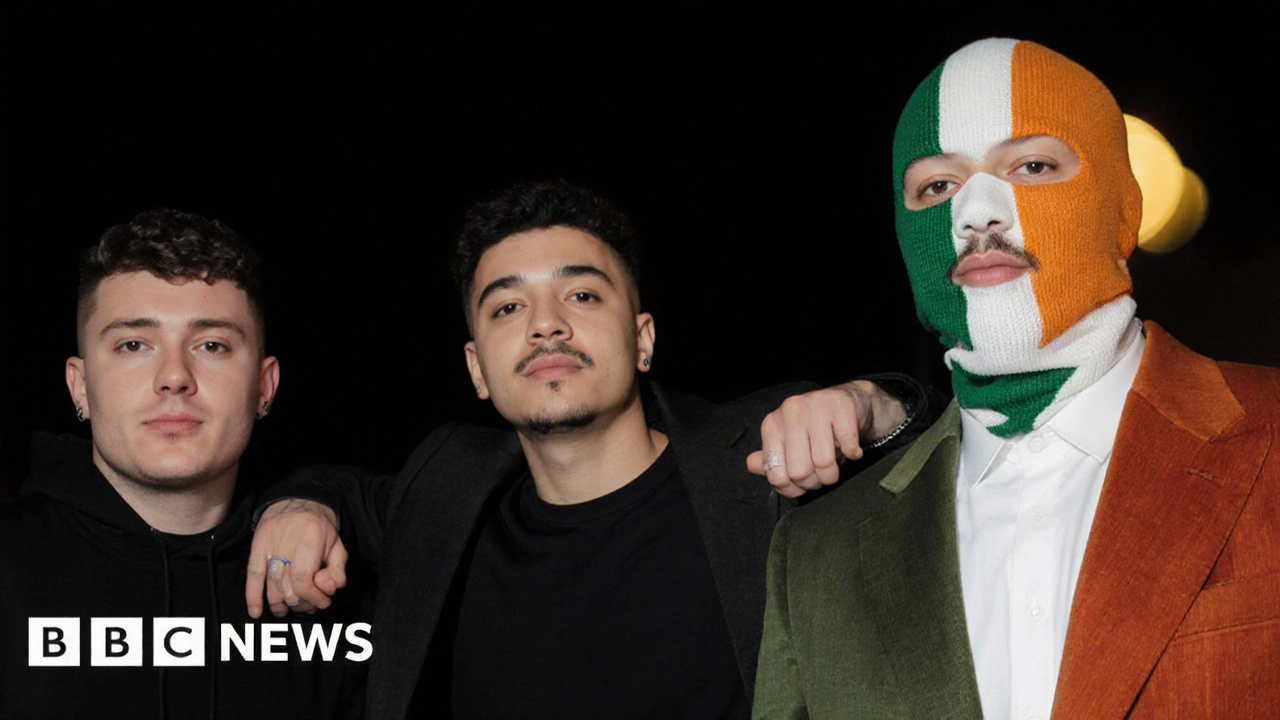Background to the controversy
In November 2023, Belfast rap trio Kneecap performed at a packed venue, and a video clip from that night quickly went viral. In the excerpt, a band member appears to say, “The only good Tory is a dead Tory. Kill your local MP.” The remark, though brief, struck a nerve because it seemed to glorify violence against elected officials.
The footage resurfaced in mid‑2024, prompting intense media coverage. Kneecap issued a statement on X (formerly Twitter) that called their words “heartfelt apologies” to the families of Jo Cox – the Labour MP murdered in 2016 – and Sir David Amess, the Conservative MP killed in 2021. The band insisted the clip was taken out of context, claimed it had been “exploited and weaponised,” and denied any intention to incite harm.
Brendan Cox, Jo Cox’s husband, watched the clip online and described it as “an incitement to violence against members of parliament, which was not acceptable.” He told Sky News that the apology felt like “only half an apology,” accusing the trio of portraying themselves as victims of a media conspiracy rather than taking full responsibility.
The controversy did not arise in a vacuum. Earlier that year Kneecap performed at the Coachella festival, where massive LED screens behind them flashed messages such as “F**k Israel,” “Free Palestine,” and “Israel is committing genocide against the Palestinian people.” The set attracted criticism from U.S. politicians and celebrity figures like Sharon Osbourne, who called for the band’s American work visas to be revoked.
UK police have now confirmed that they are reviewing the 2023 concert footage, treating the matter as a possible hate‑crime or incitement investigation. Downing Street also labeled the band’s statement “half‑hearted,” echoing Cox’s sentiment that political radicalism does not excuse calls for violence.

Reactions and wider implications
The backlash has spread beyond the immediate parties involved. Several MPs across the political spectrum have voiced concern that jokes or lyrical hyperbole about harming politicians can create a chilling effect on democratic discourse. A spokesperson for the House of Commons Security Committee warned that “any language that normalises violence against MPs undermines the safety protocols we have worked hard to establish.”
Public opinion appears split. While some fans defend Kneecap’s right to provocative art, others argue that freedom of expression ends where it threatens lives. A petition on Change.org, started by a group of parliamentary staffers, has gathered over 30,000 signatures calling for a clear, unconditional apology and a pledge from the band to refrain from any future statements that could be interpreted as encouraging harm.
- Brendan Cox’s demand: a written, unqualified apology that acknowledges the specific wording and its impact.
- Police action: a full forensic review of the concert audio and video to determine whether the statement was edited.
- Parliamentary response: a potential review of the criminal code regarding hate speech aimed at public officials.
- Industry reaction: several festival organizers have said they will reassess booking policies for acts with a history of incendiary political content.
The incident also revives the broader conversation about the safety of MPs. Jo Cox’s murder by a neo‑Nazi sympathiser and Sir David Amess’s killing by an ISIS supporter remain stark reminders of the physical risks faced by public servants. Advocacy groups such as the Association of Parliamentary and Political Employees (APPE) are urging the government to increase security funding and to develop clearer guidelines for public statements that could be interpreted as threats.
For Kneecap, the road ahead is uncertain. Their next public appearance is likely to be scrutinised for any hint of political commentary. The band’s manager, speaking on the condition of anonymity, hinted that the group is considering a “community‑service” style response, possibly involving talks about free speech and responsible artistry. Whether such a gesture would satisfy Brendan Cox or the wider public remains to be seen.
The unfolding situation underscores how a single off‑hand lyric can ripple through political, cultural and legal spheres, prompting a reassessment of where artistic expression meets the responsibility to protect democratic institutions. As police continue their review, the spotlight remains on how society balances radical voices with the need to keep elected officials safe.
